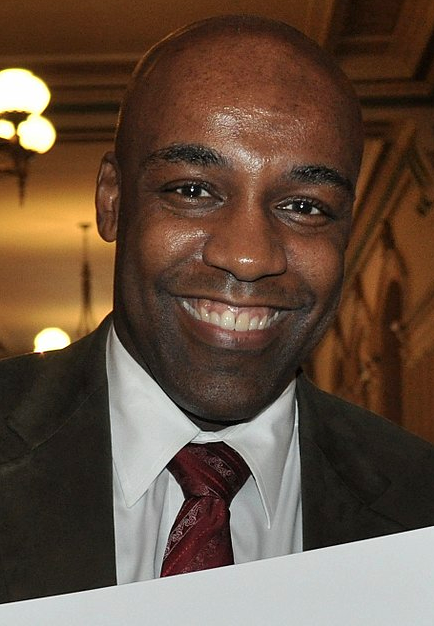
Chicago – Attorney General Kwame Raoul announced that a federal judge in Yakima, Wash. today granted a motion for preliminary injunction Raoul and 13 attorneys general filed earlier this month as part of a lawsuit challenging drastic operational changes at the U.S. Postal Service. Judge Stanley A. Bastian granted the nationwide injunction forcing the Postal Service to immediately halt changes announced by Postmaster General Louis DeJoy.
Get The Latest News!
Don't miss our top stories and need-to-know news everyday in your inbox.
“The COVID-19 pandemic has made the Postal Service more important than ever as millions of Americans receive essentials including medications, Social Security benefits and groceries through the mail. COVID-19 also means that many Americans are relying on the Postal Service to facilitate their participation in our most fundamental democratic process: voting,” Raoul said. “I filed a lawsuit because these issues are too important to be left to the whim of the postmaster general, and I am pleased that the court granted our motion and issued an enforceable order halting attempts to undermine the Postal Service.”
In the motion for a preliminary injunction filed Sept. 9, Raoul and the coalition asked the judge to order the Postal Service to:
- Immediately stop its “leave mail behind” policy, where postal trucks are required to leave at specified times, regardless of whether there is mail still to be loaded.
- Continue its longstanding practice of treating all election mail as First Class mail, regardless of the paid postage.
- Replace, reassemble or reconnect any removed mail-sorting machines that are needed to ensure timely processing and delivery of election mail.
- Abide by Postmaster General Louis DeJoy’s public commitment to suspend the recent policy changes that have affected mail service until after the election.
Attorney General Raoul and the coalition filed a lawsuit Aug. 18 challenging Postal Service policy changes, including eliminating or reducing staff overtime, halting outgoing mail processing at state distribution centers and removing critical mail sorting equipment. In Illinois, seven mail distribution centers throughout the state have had critical mail sorting equipment removed or slated for removal. Raoul and the attorneys general argue that the changes threaten the timely delivery of mail to millions of Americans who rely on the Postal Service for everything from medical prescriptions to ballots.
The Postal Service changes impair critical mail services that many seniors, veterans, and other vulnerable populations depend upon. The COVID-19 pandemic has forced many Americans, especially seniors, people with disabilities and other high-risk individuals, to rely increasingly on mail delivery services to receive essentials like medications, Social Security benefits and even groceries.
These operational challenges pose additional problems for Illinois. Mail delays in processing Illinois child support payments could affect delivery of paper checks through the mail, totaling $35 million per month and serving more than 600,000 children. Delays in child support could have a disastrous effect for families already struggling with the pandemic, and in particular will increase food insecurity among low-income minority groups. The Illinois Department of Human Services has already seen an impact from Postal Service cuts: in August, the response rate for benefit renewal notices dropped from its usual 60 percent to only 1.5 percent. These delays affect delivery of $353 million in monthly Supplemental Nutrition Assistance Program (SNAP) benefits and $11 million in Temporary Assistance for Needy Families (TANF), impacting the ability of low-income households to meet basic needs.
Across the country, record numbers of American residents are requesting absentee ballots in the midst of the COVID-19 pandemic. At the end of July, the Postal Service sent a letter to Illinois election officials warning that “certain deadlines for requesting and casting mail-in ballots” under state law “are incongruous with the Postal Service’s delivery standards.” The letter further warned that “[t]his mismatch creates a risk that ballots requested near the deadline under state law will not be returned by mail in time to be counted” under state deadlines for vote-by-mail. The Postal Service’s letter came just weeks after a new law enacted in Illinois in response to the COVID-19 pandemic required election officials to begin mailing applications for vote-by-mail to all Illinois voters who have participated in any of the three most recent elections. The new law expanding access to mail-in voting was enacted to ensure that Illinois voters do not have to choose between their health and their right to vote in this fall’s election.
These delays greatly increase the likelihood that mailed-in votes will miss election deadlines and threaten to disenfranchise a large swath of voters, particularly those most vulnerable to COVID-19 who cannot vote in person without risking exposure to the virus. While some states, like Illinois, count ballots that are postmarked by Election Day, even if they arrive after, other states require that ballots be received on or before Election Day to be counted.
Joining Raoul in the lawsuit are the attorneys general of Colorado, Connecticut, Maryland, Michigan, Minnesota, Nevada, New Mexico, Oregon, Rhode Island, Vermont, Virginia, Washington and Wisconsin.
More like this:
